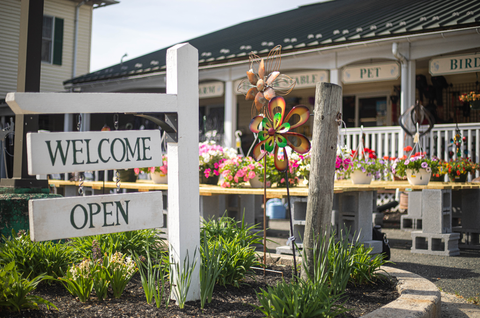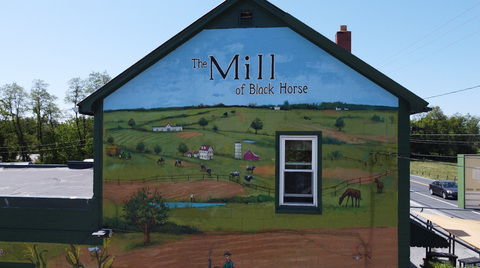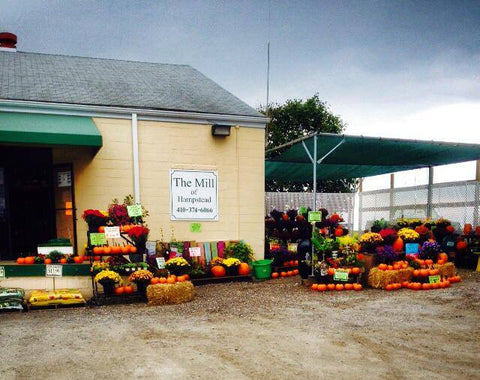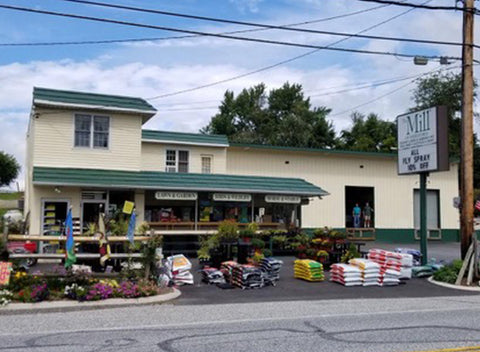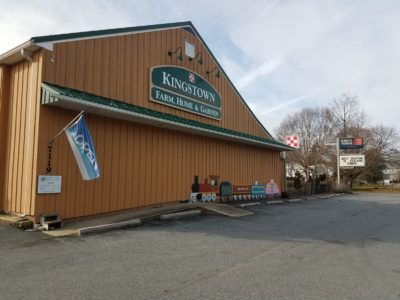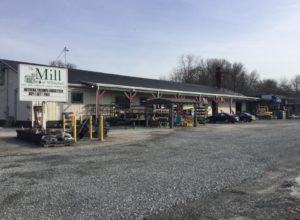Fencing is one of the most important investments for any farm. Whether you are raising livestock, protecting crops, or improving your property’s appearance, the right fence provides safety, function, and value. A poorly chosen or installed fence can lead to lost animals, damaged fields, or expensive repairs. On the other hand, a strong, well-planned fence can serve your farm for decades.
At The Mill, we provide high-quality farm fencing supplies, from oak boards and fence wire to gates for fencing and hog panels. With the right materials and expert advice, you can build fencing that suits your land, your animals, and your budget.
Why Farm Fencing Matters
Farm fencing is more than just a boundary. It:
-
Keeps livestock safe and contained.
-
Protects crops and hay fields from animal damage.
-
Establishes clear property lines and prevents disputes.
-
Enhances the overall look and value of your property.
-
Helps manage rotational grazing and land usage.
Because every farm is different, the type of fencing you choose should be based on what you are trying to accomplish, the animals you are raising, and how much maintenance you are willing to do.
Board Fencing: Durable and Attractive
Board fencing is one of the most traditional and recognizable styles of farm fencing. Often built with oak boards or pressure-treated fence boards, this type of fence is especially common around horse farms and properties that value both durability and aesthetics. The visibility of the boards makes it safer for horses, as they are less likely to run into the fence, and the structure can withstand daily wear and tear.
When considering board fencing, it’s important to factor in both cost and upkeep. While oak boards are strong and long-lasting, they can require periodic maintenance such as repainting or replacing boards over time. For farms prioritizing appearance, safety, and clear property boundaries, board fencing remains a popular and reliable choice.
Advantages of Board Fencing
-
Strength and durability: Oak is naturally hard and resists chewing and rubbing, making it a top choice for horses.
-
Easy maintenance: If one board is broken, it can be replaced without tearing down large sections.
-
Visual appeal: A neat board fence improves property value and creates a clean, well-kept impression.
-
Visibility: Horses and livestock can see board fencing clearly, reducing the risk of accidental collisions.
Considerations
When selecting a fencing system, it’s important to consider the specific needs of your farm, including the type of livestock, the landscape, and long-term maintenance. Factors to weigh include:
-
Animal type and behavior – Horses may require board fencing for visibility and safety, while cattle and pigs can be contained with wire or hog panels.
-
Durability and maintenance – Some fencing materials require more upkeep than others. Wood may need painting or treatment, while metal and wire options are generally lower-maintenance.
-
Cost and scalability – Evaluate initial installation costs and long-term replacement or repair costs. Fencing should be designed to accommodate future expansion.
-
Safety and visibility – For animals prone to running, visible fencing like board or high-visibility wire can reduce injuries
👉 Explore our selection of Fence Boards and Oak Boards.
Wire Fencing: Versatile and Cost-Effective
Wire fencing is a versatile and cost-effective option for a variety of farm needs. It is ideal for containing cattle, sheep, goats, and other livestock, as well as for protecting crops or gardens. Different gauges and styles, such as woven wire or high-tensile fencing, allow for customization based on your livestock and security requirements. Proper installation and tensioning are key to ensuring durability and preventing sagging. Wire fencing also works well with wooden posts or metal posts for added stability.
Types of Wire Fencing
-
Woven wire: Ideal for sheep, goats, and mixed herds. The grid design prevents smaller animals from escaping.
-
High-tensile wire: Strong, low-maintenance, and great for cattle. Can be electrified for extra security.
-
Barbed wire: Traditional and effective for cattle, though it should be avoided for horses because of the risk of injury.
Advantages of Wire Fencing
-
Cost-effective for large acreage.
-
Durable when installed with strong posts.
-
Flexible enough to use with different types of livestock.
👉 Shop Fence Wire and other Farm Fencing Supplies at The Mill.
Hog Panels and Livestock Panels: Flexible Solutions
Hog panels provide a durable, easy-to-install option for containing pigs and other livestock. These pre-fabricated panels are made from heavy-gauge wire and are strong enough to withstand pressure from large animals. They can be configured as pens, paddocks, or sections of perimeter fencing. When combined with posts and proper bracing, hog panels offer a reliable and low-maintenance solution for livestock containment.
Advantages of Panels
-
Quick setup with minimal tools.
-
Portable for temporary or seasonal use.
-
Strong and reliable for smaller animals.
Panels are a smart investment for farms that need versatile fencing options.
👉 Explore Hog Panels and livestock fencing at The Mill.
Gates for Fencing: Strength and Access
Every fence needs at least one gate, and often several. Choosing the right gates for fencing ensures convenience and safety. Gates are a critical component of any farm fencing system. Choosing the right livestock gates ensures easy access for animals and machinery while maintaining the integrity of your fencing. Gates should match the type of fencing used and accommodate the size and volume of traffic expected. Regular inspections and maintenance can prevent sagging or damage, helping to extend the life of your entire fencing system.
Gate Options
-
Tube gates: Heavy-duty steel, ideal for livestock pastures.
-
Wire gates: Lightweight and affordable, best for less demanding areas.
-
Custom gates: Available in a variety of widths and styles to fit unique setups.
A gate should be wide enough to accommodate equipment, tractors, and trailers, not just people and animals. Investing in durable livestock gates saves time and money in the long run.
👉 Browse Livestock Gates and Gates for Fencing at The Mill.
Maintenance Tips for Long-Lasting Fences
Once your fence is in place, regular maintenance is key to keeping it strong:
-
Inspect fences at least once per season.
-
Replace broken boards, wires, or panels quickly.
-
Keep posts solid and replace rotting wood posts as needed.
-
Check gates for sagging or bent hinges.
-
Apply protective coatings to wood fencing to extend its life.
A fence that is well-maintained not only lasts longer but also provides peace of mind for animal safety.
Partnering with The Mill for Fencing Supplies
When farmers search for “buy fence boards near me”, The Mill is the go-to resource for farm fencing supplies. We stock everything from oak boards and fence wire to livestock gates and hog panels, along with the hardware and tools you need to install them.
Our knowledgeable team can help you:
-
Choose the right materials for your livestock and land.
-
Calculate how much product you’ll need.
-
Recommend installation best practices.
Final Thoughts
Farm fencing is more than a boundary. It’s an investment in safety, efficiency, and appearance. From oak boards to fence wire, hog panels, and livestock gates, The Mill has the farm fencing supplies you need to build and maintain fences that last.
Visit one of The Mill’s locations or browse online to explore our full range of fencing products. Let us help you create a fencing solution that works for your farm today and well into the future.




